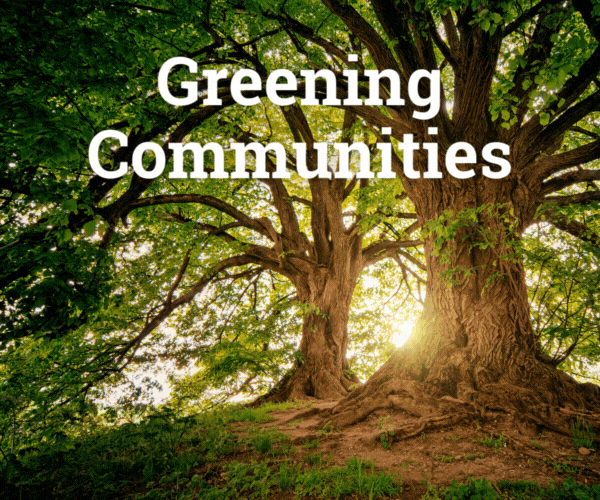Far beyond President Trump’s promises to remove criminal migrants from America, detentions and deportations have struck legal residents, visa holders and tourists.
As humanitarian protections like parole and Temporary Protected Status (TPS) are being revoked; green cards revoked over the holders’ political views; agencies like the IRS are being pressured to expose immigrant applicants; and social media activity is scrutinized in naturalization cases, undocumented immigrants are far from the only people with their future at stake.
Not only has the administration — issuing least seven immigration-related executive orders out of a total 26 on day one alone — cracking down on the border through deputizing military, federal, state and local law enforcement by declaring mass immigration a national emergency, “they’re using antiquated war power to pick people out,” said Zenobia Lai, executive director at Houston Immigration Legal Services Collaborative, at a Friday, March 28 American Community Media briefing.
She referred to the Alien Enemies Act of 1798, which Trump invoked in mid-March for the first time since World War II to deport hundreds of migrants to countries other than their own including El Salvador and Panama.
While he targeted the Venezuelan Tren de Arangua gang, no evidence has been provided as to who was deported and whether they were gang members or criminals.
As of Monday, March 31, the administration said that it has deported 17 more “violent criminals” from the Tren de Aragua and MS-13 gangs — citing murderers and rapists among them — to El Salvador’s maximum-security prison.
This is in continuation of an early February agreement U.S. Secretary of State Marco Rubio made with the Salvadoran President Nayib Bukele to jail deported U.S. criminals, regardless of nationality: “the most unprecedented, extraordinary, extraordinary migratory agreement anywhere in the world,” as Rubio later described it.
Other tactics have included a day one executive order nullifying birthright citizenship, which Trump has since taken to the Supreme Court; rescinding the Biden-era “sensitive locations policy” that had protected public areas like churches, schools, hospitals and funerals from immigration enforcement; and eroding safety nets through an executive order directing data sharing between states and federal agencies like the IRS, alongside mass federal layoffs and budget cuts.
“They have not been just going after criminals, like the administration said … Immigrants are being used to test the rule of law,” continued Lai. “U.S. residents are being snatched off the street, and green cards revoked without due process.”
The past few weeks have seen at least nine such incidents of visa holders detained by ICE — largely graduate students accused of being “pro-Hamas,” most famously Tufts graduate student Rumeysa Ozturk and Columbia graduate student Mahmoud Khalil.
“We as a country, ask people to come in, and we are now stripping that status away,” said Todd Schulte, president of FWD.us. “In the next couple of years, we can be a country that not only keeps people in these statuses, but builds towards a permanent status, and if that’s not going to happen, we shouldn’t be throwing people into chaos.”
“We need to guard very carefully when people say they’re just going after certain sorts of people … whether they had contact with the criminal justice system, whether they are from a certain country, with this sort of criminalization is a trap that expands out from there,” he continued, mentioning as an example the Trump administration’s targeting of parole and TPS holders.
The Trump administration has revoked the work permits and deportation protections of 532,000 Cuban, Haitian, Nicaraguan and Venezuelan under a Biden-era parole sponsorship known as CHNV, effective late April, 25 days after March 30.
Meanwhile, a San Francisco District Judge ruling on Monday, March 31 blocked about 348,000 of the country’s 600,000 Venezuelan TPS holders alone from deportation.
“Parole authority has gone back seven decades. It’s been used by every president of every party, and it’s been a tremendous success,” said Schulte, adding as example the 76,000 Afghanis who fled the Taliban takeover in 2021 and the over 280,000 Ukrainians who have fled the war with Russia since 2022.
“People seeking refuge is not an invasion,” he continued. “Last November, the public was unhappy with what they saw as a chaotic border. Let’s build a secure pathway to citizenship … because if you create a situation where immigrants don’t have access to education, housing or basic health care, the chaos is a force multiplier for everyone.”
“If the administration is willing to violate principles of due process, when it comes to immigrants, there is no reason. There’s no reason to think that anybody is going to be exempt from that … including citizens and permanent residents,” said Martin Kim, director of immigration advocacy at AAJC Southern California.
He added that the administration’s January 27 decision to cut over $3 trillion in federal grants and loans means that nationwide, “community organizations are having trouble continuing to provide vital services like English language education, citizenship workshops and legal assistance … Now we can really see, day by day, how the weakening of rights for immigrant communities weakens rights for everyone.”
“The through line with all of this is a destruction of American due process,” said David Leopold, former president of the American Immigration Lawyers Association and current partner at UB Greensfelder LLP in Cleveland, Ohio.
“Immigrants are the tip of the spear, and what are being offended are core American values,” he explained. “Nobody wants dangerous gangs in the country, but people have a right to defend themselves. People have a right to be heard … This is something we have not ever seen, at least in my lifetime, and it’s a very, very dark moment in history.”
“My grandfather, as a Jew, didn’t outsmart the Nazis to get the United States so that I could cower in fear. I have worked with people in totalitarian regimes, and the best protection is public honesty,” Leopold continued.
“”There’s a saying that I can’t get out of my head since this all started, and it comes from Rabbi Hillel from the Middle Ages,” he added: “‘If I am not for myself, who will be for me, and if I’m only for myself, what am I? And if not now, when?’ This is the moment that we’re in, and every one of us has to decide for ourselves how we are going to look at ourselves 20 years from now and wonder: What did we do?”





